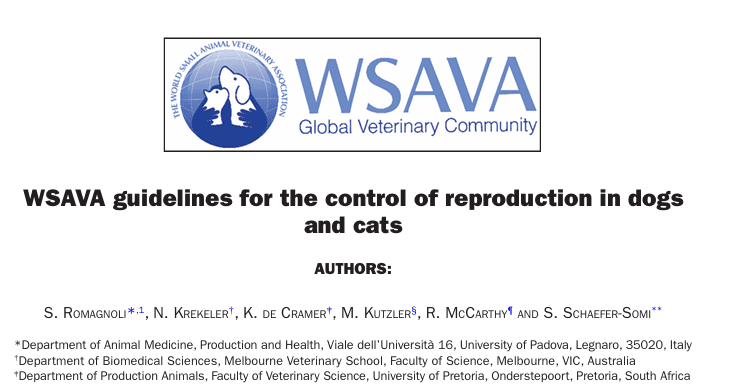As a holistic veterinarian, I firmly believe that there are a multitude of natural, complementary and Western approaches to managing pain and improving the quality of life of our aging or chronically painful pets. Treatments such as Solensia (for cats, frunevetmab) and Librela (for dogs, bedinvetmab, known as Beransa on the Australian market) should only be considered as a last resort, when all other options, based on a holistic approach to pain management, have been exhausted. These drugs, which are nerve growth factor (NGF)-blocking monoclonal antibodies, are primarily palliative and carry risks too great to be used as a first-line treatment.
The role of nerve growth factor (NGF)
NGF is a crucial protein in the regulation of pain and the growth of sensory neurons, responsible for transmitting pain signals. When arthritis causes inflammation in the joints, NGF is activated, intensifying pain perception. Solensia and Librela act by blocking NGF, thereby reducing the pain signals transmitted to the brain, but do not treat the underlying cause of the disease, i.e. they relieve the symptoms without curing or treating the arthritis itself. NGF also plays an essential role during growth, neuronal maintenance and, above all, brain function; a reduction in NGF is seen in patients with Alzheimer’s disease or Cognitive Dysfunction of the Dog. It also has an effect on digestion, notably the pancreas, kidneys and the immune system, with regard to inflammation management, the adaptive system and mast cells. According to studies, NGF has roles in inhibiting and proliferating certain types of tumor. In short, NGF is found everywhere, is involved in various biochemical pathways, and its use is prohibited in growing or reproducing animals.
Drug development and human clinical trials
Interestingly, drugs similar to Solensia and Librela have been developed for humans, e.g. tanezumab, fulranumab and fasinumab. However, in clinical trials, these treatments led to serious complications, including rapid deterioration of osteoarthritis and increased need for joint replacement. These adverse effects were so worrying that clinical trials were stopped, and this type of drug was never approved for human use. This story raises questions about the safety of long-term use of these drugs in animals.
Librela marketing and safety studies
Two studies have been carried out to assess Librela’s safety and efficacy, one in the United States and the other in Europe. These studies followed dogs for 2.5 months for the management of pain associated with arthritis, with up to three doses administered during this period. In the US, in the group of dogs treated with Librela, the following effects were observed: urinary tract infections (15%), dermatological infections (11%), dermatitis (10%), dermal mass (8%), skin redness (6%), dermal cysts (4%), inappropriate urination (4%) and histiocytoma (3%). During the European study, the following adverse events were reported: kidney problems (increased urea, 19%), lethargy (5%), vomiting (4%), anorexia (3%), lameness (3%) and cough (3%). It should be noted that during the European study (where a total of 138 dogs received Librela), two dogs in the treatment group experienced serious side effects and had to be euthanized. Following this initial study, 89 of the dogs were followed up for six months with monthly injections of Librela; according to published information, four dogs experienced additional side effects.
Side effects of Solensia and Librela
Although these treatments are sometimes presented as simple solutions for managing arthritis pain, they come with a long list of potential side effects that are important to consider.
- Injection site reactions
Common side effects include injection site reactions such as pain, swelling or redness. While these reactions may be minor, some can be more problematic for the animal. - Gastrointestinal disorders
Solensia and Librela can cause gastrointestinal disorders such as vomiting, diarrhea and loss of appetite. These symptoms are usually transient, but can become problematic, especially if the animal refuses to eat. - Urinary problems
Urinary disorders, such as difficulty in urinating, incontinence or urinary infections, have been reported in some animals receiving these treatments. Cats, in particular, are susceptible to urinary tract diseases, making these side effects a cause for concern. - Kidney problems
Some animals have experienced changes and increases in kidney parameters following treatment with Librela or Solensia. There have been reports of severe renal failure, possibly linked to the immune complexes resulting from this monoclonal antibody treatment. - Hemolytic anemia and thrombocytopenia
Hemolytic anemia is a condition in which the immune system attacks red blood cells, causing fatigue, weakness and breathing difficulties. Thrombocytopenia, on the other hand, manifests itself as a reduction in platelet numbers, increasing the risk of bleeding and clotting disorders. Both conditions are serious and require rapid veterinary intervention. - Neurological reactions
These drugs are contraindicated in animals with neurological disorders, such as canine cognitive dysfunction. Their action on the nervous system could aggravate neurological problems such as ataxia, paresis (muscle weakness) and epileptic-type seizures. - Joint effects
According to animal and human studies, anti-NGF drugs lead to increased cartilage degeneration and destroy subchondral bone, thus significantly aggravating the arthritis they are intended to relieve. - Systemic
Other systemic reactions have been reported, including lethargy, anorexia, lack of efficiency and death. - Hypersensitivity
As is often the case with drug treatments, especially when administered by injection, there is a risk of anaphylaxis, itching and swelling of the head. These risks increase with each exposure to the molecule, i.e. with each monthly injection.
Conclusion
Solensia and Librela offer a potential solution to arthritis pain in dogs and cats, but it’s essential to understand that they are not risk-free and are approved only for the treatment of arthritis. These drugs do not treat the cause of arthritis and can have serious, even fatal, side effects. What’s more, the fact that similar drugs have not been approved for humans due to serious complications raises questions about their long-term safety for our animals. These drugs should not be considered as a miracle solution, nor as the first line of treatment, but rather as a palliative option among various other less risky options in the overall management of pain in our four-legged companions. Before considering any of these treatments, it’s crucial to discuss the risks and other options available with your veterinarian, so that you can choose the best approach for your four-legged friend’s health and well-being. In my holistic veterinary practice, I prefer to use gentler methods, without the potentially serious side effects, such as acupuncture, phytotherapy, natural (balanced) nutrition, physiotherapy, chiropractic, etc.
Don’t forget to make a clear diagnosis of osteoarthritis and to have blood tests carried out before and during any treatment with Librela or Solensia. In my view, these drugs are palliative at best, and their use should be limited as much as possible, and potential side effects monitored rigorously.
References
References were accessed on 02.11.24
FDA adverse events Librela May 2023 to June 2024 English
Data sheet Librela FDA, United States English
Data sheet Librela Canada English
Data sheet Solensia USA English
Librela Switzerland French
Solensia Switzerland French
Solensia Europe French
Librela Euopre French




